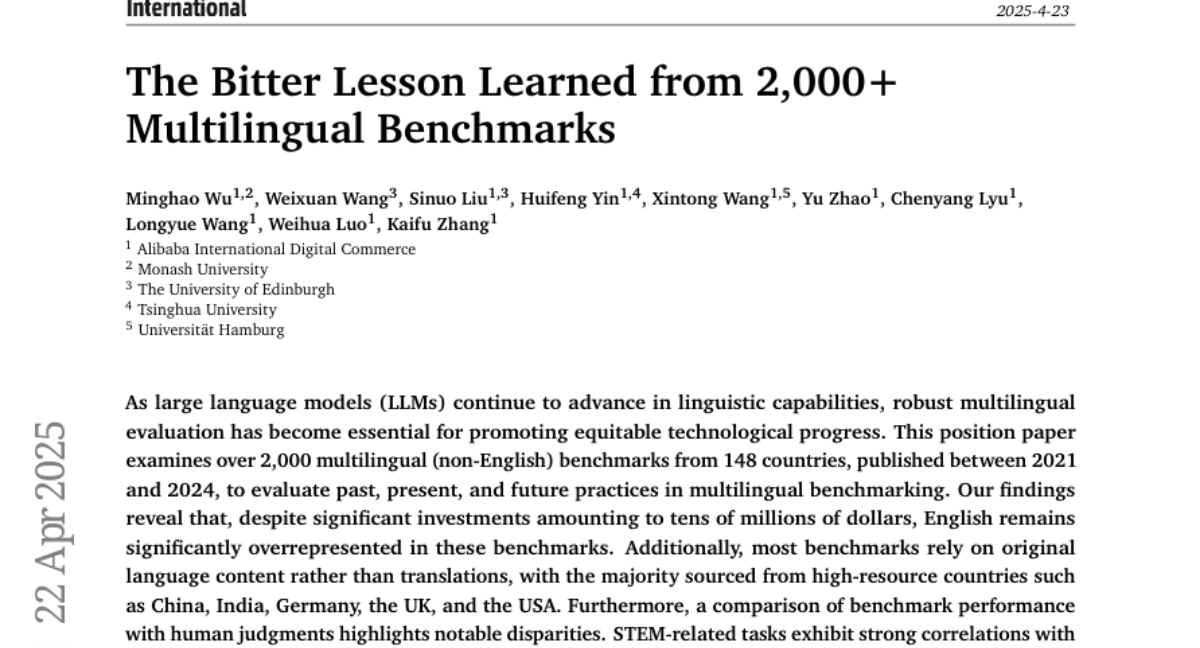The Bitter Lesson Learned from 2,000+ Multilingual Benchmarks
Minghao Wu, Weixuan Wang, Sinuo Liu, Huifeng Yin, Xintong Wang, Yu Zhao, Chenyang Lyu, Longyue Wang, Weihua Luo, Kaifu Zhang
2025-04-23

Summary
This paper talks about a big study that looked at over 2,000 tests used to measure how well AI models work in different languages, and found that just translating tests from one language to another doesn’t give fair or accurate results.
What's the problem?
The problem is that most benchmarks, which are like tests for AI, are created in English and then simply translated into other languages. This ignores important cultural and language differences, which means the AI might not actually be as good in those other languages as the test results suggest.
What's the solution?
The researchers analyzed a huge number of multilingual benchmarks and showed that there are big gaps and unfairness in how these tests work across languages. They argue that instead of just translating, we need to create tests that are specifically designed for each language and culture to really see how well AI is doing.
Why it matters?
This matters because if we want AI to be fair and helpful for everyone around the world, we need to make sure it’s tested and improved in ways that respect different languages and cultures, not just copied from English.
Abstract
Research reveals significant disparities in multilingual benchmark evaluations, emphasizing the need for culturally and linguistically tailored benchmarks over translations to achieve equitable technological progress.